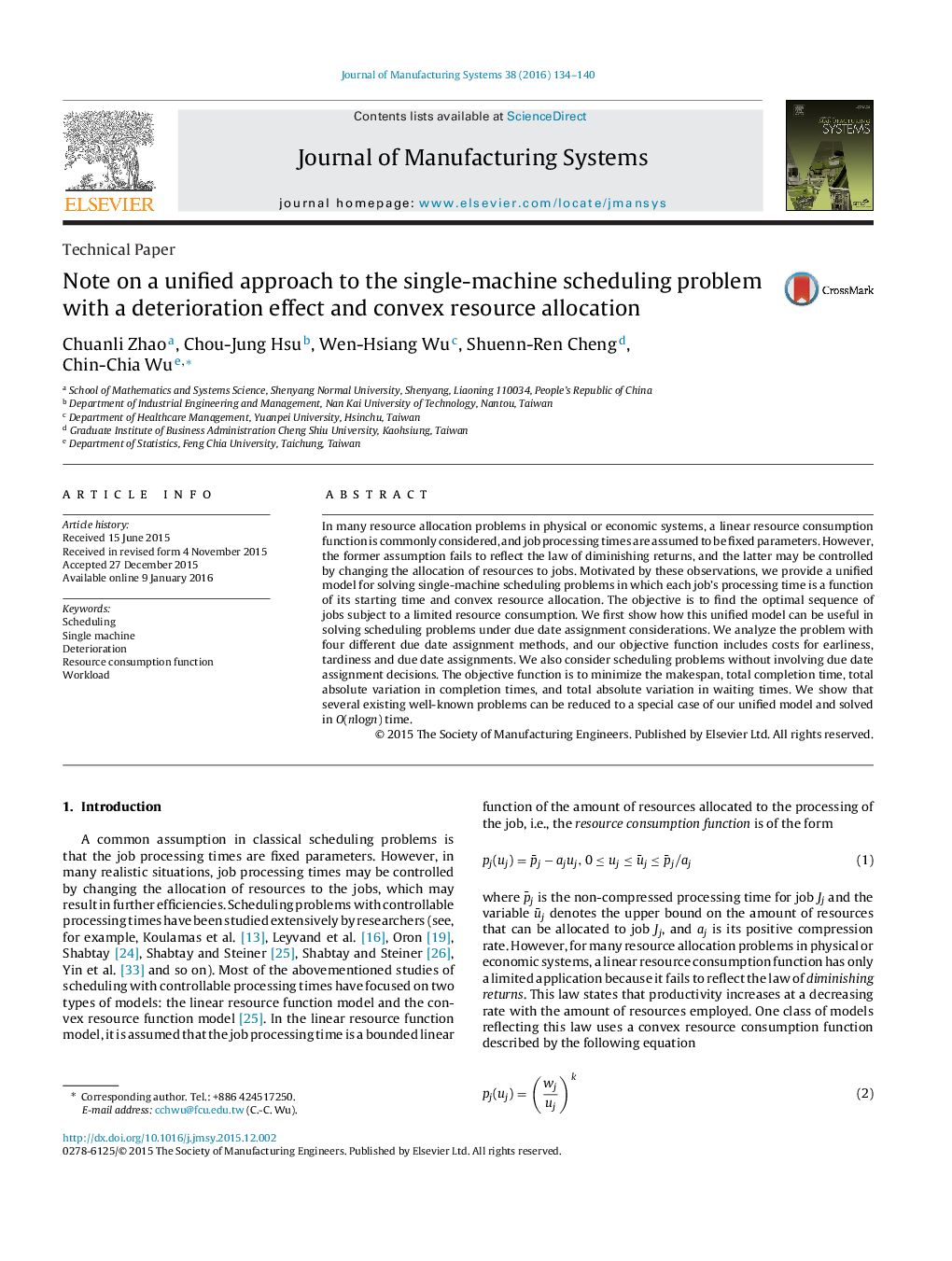| Article ID | Journal | Published Year | Pages | File Type |
|---|---|---|---|---|
| 1697384 | Journal of Manufacturing Systems | 2016 | 7 Pages |
•We propose formulas for calculation the optimal allocation.•We build formulas for position-dependent weights that can be used for solving a few scheduling problems with different forms of due-date assignment.•We discuss the complexity of solving the considered problem without resource allocation.
In many resource allocation problems in physical or economic systems, a linear resource consumption function is commonly considered, and job processing times are assumed to be fixed parameters. However, the former assumption fails to reflect the law of diminishing returns, and the latter may be controlled by changing the allocation of resources to jobs. Motivated by these observations, we provide a unified model for solving single-machine scheduling problems in which each job's processing time is a function of its starting time and convex resource allocation. The objective is to find the optimal sequence of jobs subject to a limited resource consumption. We first show how this unified model can be useful in solving scheduling problems under due date assignment considerations. We analyze the problem with four different due date assignment methods, and our objective function includes costs for earliness, tardiness and due date assignments. We also consider scheduling problems without involving due date assignment decisions. The objective function is to minimize the makespan, total completion time, total absolute variation in completion times, and total absolute variation in waiting times. We show that several existing well-known problems can be reduced to a special case of our unified model and solved in O(nlogn) time.
